As a new parent, one of the most important decisions you will make for your baby is choosing the right type of water for their formula. With so many options available, it can be overwhelming to determine which one is best for your little one.
One type of water that is often recommended for baby formula is distilled water. Distilled water is different from other types of water because it is purified through a special process that removes all impurities and minerals.
In this blog post, we will explore the benefits of using distilled water for baby formula compared to other types of water. By understanding the advantages of distilled water, you can make an informed decision and provide your baby with the best possible start in life.
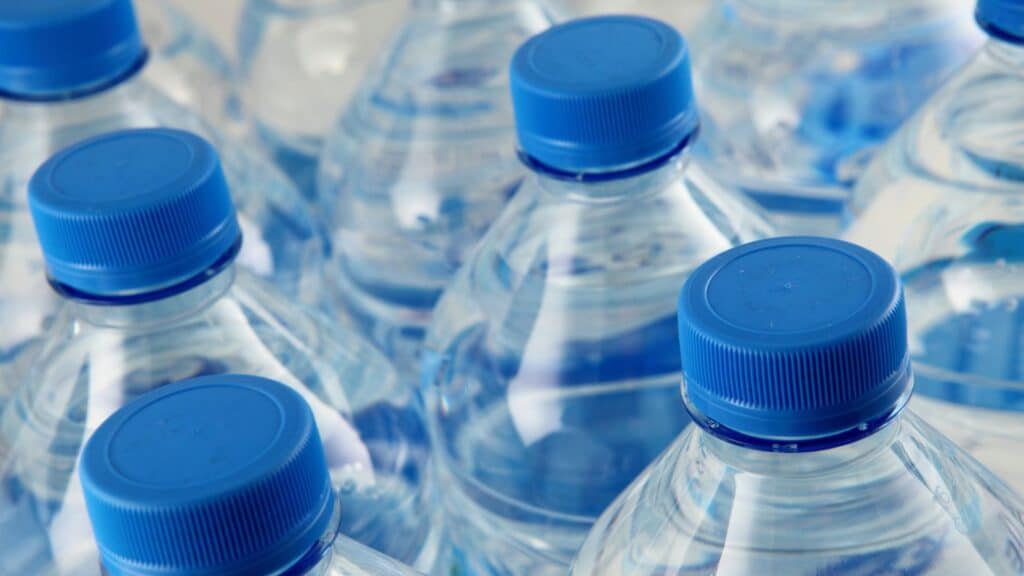
Hydration Is Essential for Baby’s Health
Selecting the best water for your baby plays a crucial role in their overall development and well-being. While tap water is an option for many households, it’s imperative to remember that the quality can vary greatly from region to region. It may contain elements not particularly suitable for an infant’s delicate system. Bottled mineral water, on the other hand, can often be high in sodium and might not be the best for your baby either.
Therefore, when considering what water to use for your baby’s formula or hydration needs, purified, distilled, or specially formulated nursery water devoid of harmful substances and balanced mineral content can be a safer choice.
Always consult a healthcare professional regarding the suitable water choices for your baby. Moreover, while hydration is essential, avoid giving water to babies under six months of age, as this can disrupt the balance of electrolytes in their bodies and reduce the need for breast milk or formula – the primary sources of their nutrition. Always remember, hydration is essential, but so is providing it under the correct guidance and measures.
Distilled Water for Baby Formula
Drinking distilled water is generally considered safe and can be beneficial in certain situations, such as for use in baby formula. The Environmental Protection Agency (EPA) considers distilled water to be one of the safest types of drinking water, as the distillation process removes most contaminants, including bacteria, viruses, and minerals.
Using distilled water for baby formula can be a good idea, as it eliminates any potential contaminants that could be harmful to an infant’s delicate immune system. However, it’s important to note that when you drink distilled water, it does not contain any minerals that are necessary for a baby’s growth and development. Therefore, it’s important to use a formula that contains all the necessary nutrients, including minerals, to ensure proper growth and development.
Distilled water can be obtained through the distillation process, or it can be purchased at grocery stores or other retail locations. Some people may find that distilled water tastes flat, but this can be remedied by adding minerals or using a carbon filter to add flavor.
Overall, distilled water can be a good option for use in baby formula and for those with private drinking water systems that require water purification. However, it’s important to make sure that all necessary nutrients are provided through other sources, as distilled water does not contain them.
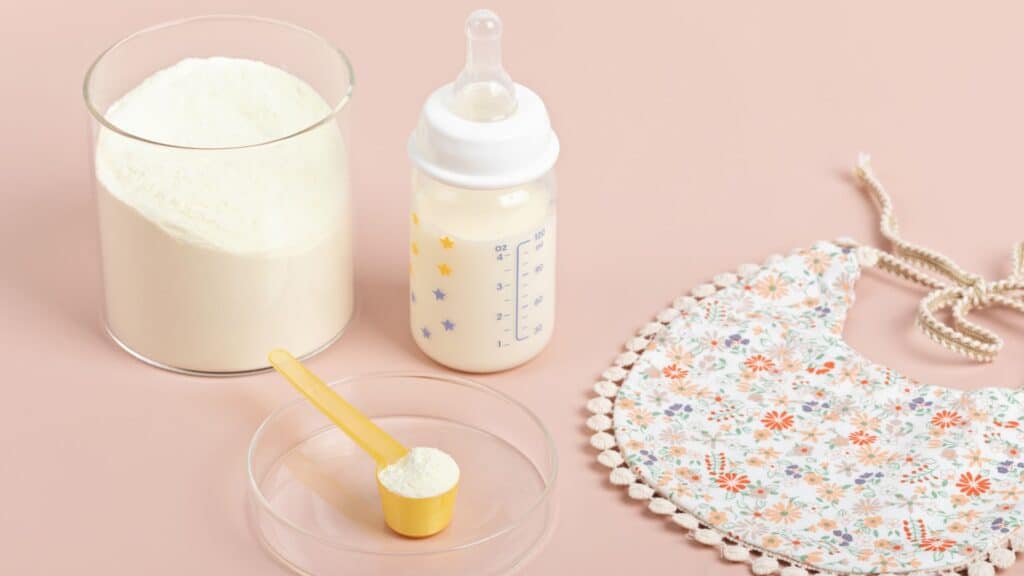
How Much Water Do Babies Need?
Ensuring the appropriate hydration of infants can seem overwhelming due to their developing swallowing mechanism, making it challenging to consistently deliver enough fluids to their little, growing bodies. As parents, it’s essential to understand their specific fluid requirements in the first year of life, approximately 0.8 liters of fluid per day, and take necessary steps to ensure they stay adequately hydrated. While your infant’s small size may make this volume appear considerable, it’s crucial to remember that their rate of fluid consumption is integral to their healthy development and aids in staving off dehydration.
A variety of factors contribute to the fluid needs of a baby. Is your baby breast-fed? Breast milk can deliver a significant portion of their necessary hydration. Has your baby started having solid foods? If so, there might be a need to increase fluid intake to assist in the digestion of these new food sources.
The volume and type of formula your baby consumes also play a role in their hydration level if they’re bottle-fed. The choice of formula, be it a ready to feed infant formula or a liquid concentrate, can influence this. Finally, if you have incorporated juices into your little one’s diet, be cautious. While they add to the fluid intake, their high sugar content calls for moderated use. Ultimately, managing an infant’s hydration needs requires understanding and gently balancing these multiple influences. Each baby is unique, and catering to their fluid needs with a personalized approach helps prevent dehydration and promote their overall well-being.
Benefits of Using Distilled Water for Baby Formula
1. Absence of Impurities
Distilled water is pure to the very last drop. It has no impurities, including less than 10 parts per million of dissolved minerals that can be found in tap water.
2. Reduced Risk of Contaminants
Babies can be susceptible to illness from impurities in the water and food they ingest. Distilled water reduces your baby’s risk of exposure and helps remove potentially harmful chemicals or other contaminants from the formula, which can lead to a healthier lifestyle. By using distilled water for baby formula, you help reduce the risk of contaminants in your baby’s food.
3. Safe for Baby’s Developing Immune System
Distilled water is meant for babies and plays a huge role in their development. Babies have the most sensitive immune system, and distilled water helps maintain a healthy immune system. Making your own baby formula provides you with a sense of security that your baby’s formula is free from contaminants and safe for consumption.
Distilled water is often considered safe for a baby’s developing immune system because it is free from inorganic minerals that can contribute to water hardness. When a baby drinks hard water, the hard minerals can accumulate in the intestinal tract and may even pass through the intestinal walls and into the lymphatic system. This can cause health problems and make the baby more susceptible to illnesses.
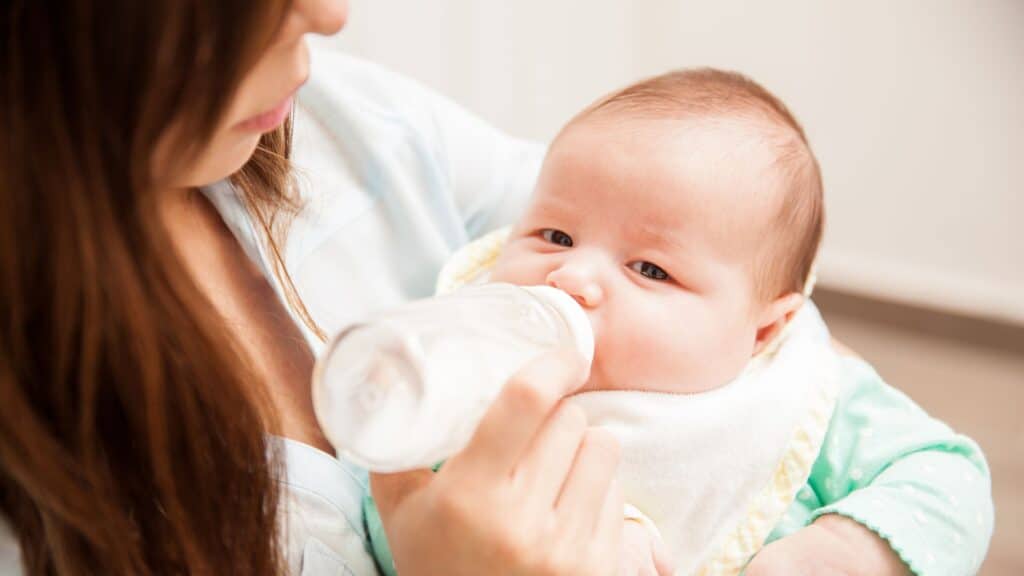
The American National Standards Institute recommends that all the minerals in drinking water be within certain levels to ensure its safety for consumption. However, distilled water is devoid of all minerals, making it a safer choice for babies. While some may argue that babies need minerals for their growth and development, it is important to note that they can obtain these minerals from other sources such as breast milk and formula.
Overall, if you are concerned about the safety of your baby’s drinking water, it is best to consult with a pediatrician. They can advise you on the best type of water to use for your baby based on their individual needs and health status.
How to Obtain Distilled Water for Baby Formula
Distilled Water is one of the best ways to meet the needs of your baby. To obtain distilled water for baby formula, follow these steps:
- Look for distilled water at your local grocery store or supermarket. It is typically sold in gallon jugs or smaller bottles.
- Check the label to make sure that the water is indeed distilled and not just purified or filtered.
- If you cannot find distilled water in the water section, check the aisle where cleaning products are sold. Some stores may sell distilled water for use in steam irons and other household appliances.
- Once you have obtained the distilled water, store it in a clean, covered container until it is needed for the baby formula.
- When preparing the baby formula, use the distilled water as directed in the formula instructions. It is important to follow the instructions carefully to ensure that the formula is properly mixed and the baby receives the right amount of nutrients.
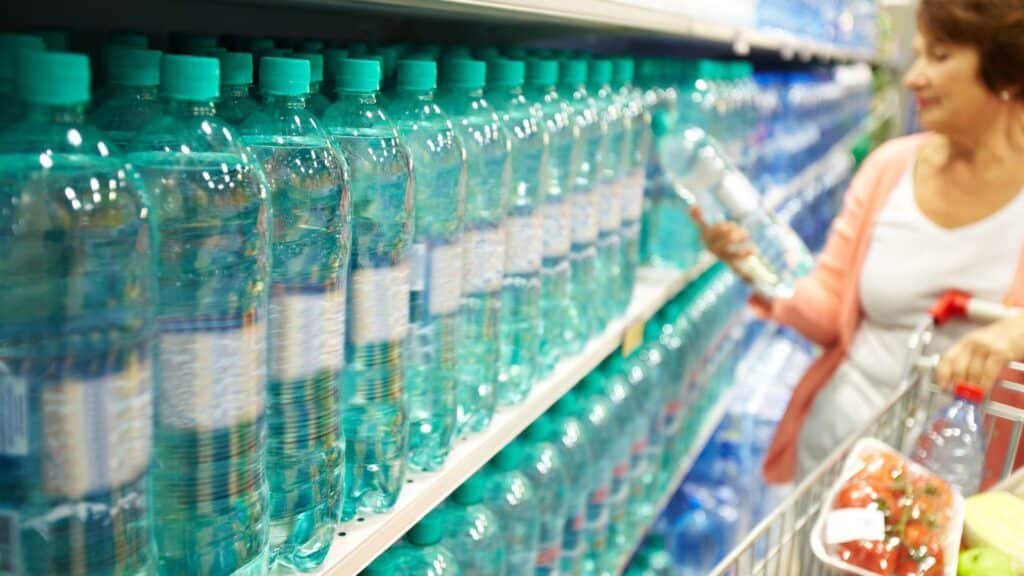
Can I Distill Water at Home?
It is possible to distill water at home using a simple purification process. To do this, you will need a few essential items: a large pot with a lid, a glass or ceramic bowl, tap water, and a heat source. The process involves boiling water and collecting the steam as it condenses, leaving behind any impurities and chemicals that may have been present in the original water.
Simple Method to Make Distilled Water at Home
Here are the steps to follow:
- Fill the large pot with tap water, leaving some space at the top.
- Place the bowl in the center of the pot, making sure it floats on the surface.
- Cover the pot with the lid, upside down, so that it forms a concave shape.
- Bring the water to a boil and reduce the heat to low-medium so that it simmers gently.
- As the water boils, the steam rises and hits the lid, which causes it to condense and drip into the bowl.
- After a few minutes, the bowl will start filling up with distilled water.
- Turn off the heat once you have collected enough water, leaving behind any impurities and chemicals that were present in the original tap water.
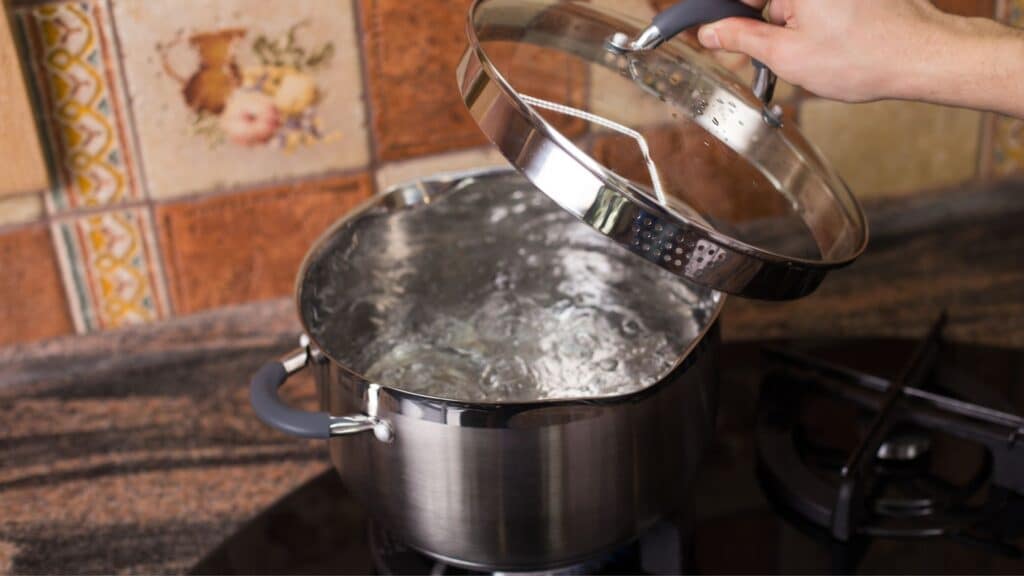
Note that this method of distilling water only removes impurities and other chemicals that have a higher boiling point than water. Some other minerals and trace elements may still be present in the distilled water, but they are essentially free of any harmful chemicals and can be safe to drink. Distilled water is commonly used in medical facilities and laboratories.
Other Types of Water for Baby Formula
There are several types of water that can be used for baby formula, including:
1. Tap Water
Tap water is easily accessible and comes directly from a spring or a lake, where it’s treated to make sure it’s safe to drink, even though unfiltered drinking water may contain parasites or disease-causing agents in trace amounts that are harmful to your health.
Potential Risks and Contaminants:
Tap water can be contaminated if the water source has been exposed to hazardous materials, or is located near wild animals, livestock farms, manufacturing plants or other potentially polluted areas. The EPA recommends that you use a water filter if your drinking water tastes bad, or if it has an odor or looks cloudy.
In addition to taste, odor, and cloudiness, tap water may contain a range of potential risks and contaminants that can pose a threat to human health. Heavy metals like lead, arsenic, and mercury can be present in tap water and may increase the risk of human diseases such as gallstones, volatile gasses and kidney stones.
Other potential contaminants in tap water may include bacteria, viruses, pesticides, and chemicals like chlorine and fluoride. Exposure to these contaminants can have negative health effects, ranging from minor illnesses to more serious health problems.
To reduce the risks of exposure to contaminants in tap water, it is important to regularly test water quality and take steps to address any issues that are identified.
Overall, while tap water is generally considered safe to drink, it is important to be aware of potential risks and contaminants and take steps to ensure that your drinking water is safe for consumption. By staying informed and taking action to protect your health, you can help reduce the risks associated with drinking tap water.
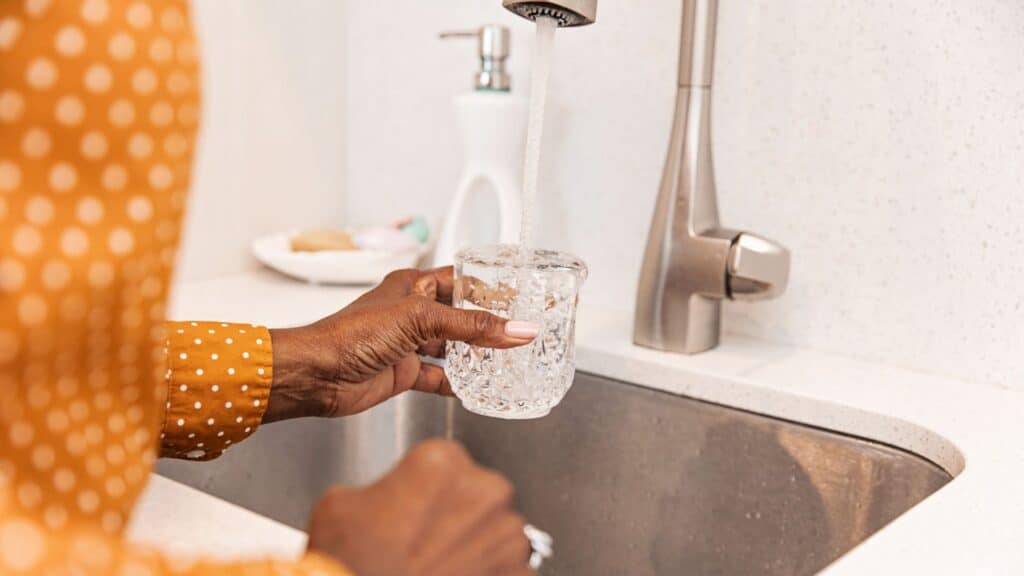
Ways to Reduce Risks:
Boiling and filtering drinking water is the most common way to kill germs, whether they’re in your bathwater or food.
This is especially helpful if you have a lot of chlorine or fluoride in the water. Filters are inexpensive and easy to install. Many water filters on the market can remove offensive odors from drinking water. As an added bonus, many people find that their skin feels better when using filtered water.
In addition to boiling and filtering, there are several other ways to reduce the risks associated with drinking contaminated water. One effective method is drinking distilled water, which removes impurities through a process of vaporization and condensation.
Other water treatment methods, such as reverse osmosis and UV radiation, can also be effective at purifying water and reducing the risk of many human diseases that are transmitted through contaminated water.
It’s important to note that just using filters may not be enough to fully purify your water supply. Depending on the source of your water, it may require additional treatment methods to ensure its safety for drinking and cooking.
Overall, taking steps to purify your water supply can significantly reduce the risk of waterborne illnesses and improve your overall health and wellbeing.
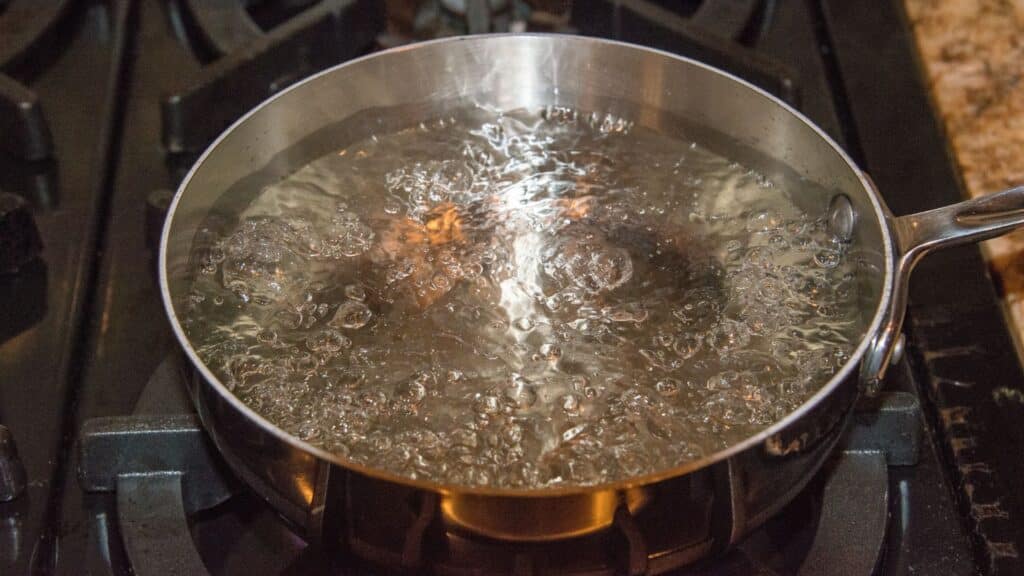
2. Bottled Water
Bottled Water is a drinkable, packaged water product. It may be manufactured from spring water, mineral water, tap or well water and is chilled for convenience, but it does not differ from the drinking water found in the fridge at home.
The production of bottled water differs from that of tap water in both quantity and quality. While the FDA has regulations for the safety of drinking water, there are no regulations for bottled water since it is not sold directly from a public source. Bottled water is more expensive than other options because it needs to be transported and processed through multiple facilities before being distributed to stores.
Choosing the Right Bottled Water for Baby Formula:
When choosing water for baby formula, it is important to look for water that is labeled as “sterile” or “purified.” This ensures that the water is free from any harmful contaminants or bacteria that could be harmful to the baby’s health. It is important to avoid bottled water that is labeled as mineral water or spring water, as these types of water may contain high levels of minerals that could affect the baby’s health.
When it comes to drinking water for yourself, opting for purified water can also be a wise choice. Purified water refers to water that has undergone a process of filtration and purification to remove impurities, contaminants, and bacteria. This includes both distilled and purified water.
Drinking purified water can have many benefits, including improving overall hydration and reducing the risk of tooth decay. This is because purified water does not contain any added minerals or chemicals that can contribute to tooth decay.
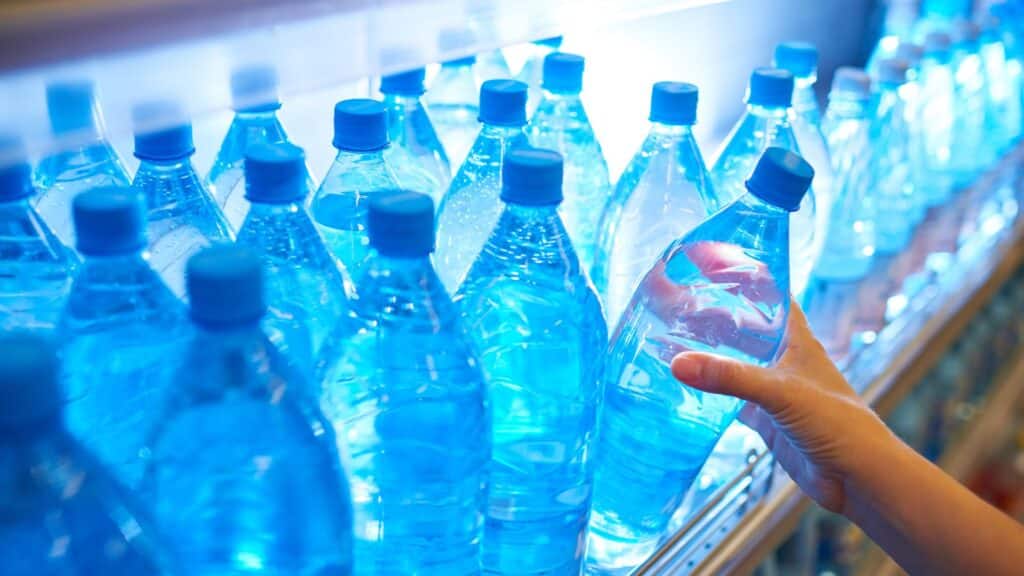
However, it’s important to be mindful of the packaging used for bottled purified water. Many brands use plastic bottles that can leach harmful chemicals into the water over time. To minimize this risk, look for brands that use BPA-free plastic bottles or opt for glass bottles instead.
It’s also worth noting that there is no need to consume more purified water than you would with tap water. The recommended daily intake of water is the same amount, regardless of whether it’s purified or not. So, if you have access to safe tap water, you can also opt for that instead of purchasing bottled water.
Some other things to consider when choosing water for baby formula include:
1. Check the Label:
Look for water that is labeled as “sterile” or “purified.” The label should also indicate that the water is safe for infants.
2. Check the Source:
Find out where the water comes from and if it has been tested for contaminants. Some water companies provide information about their testing and treatment processes on their websites.
3. Check the Expiration Date:
Make sure the water has not expired and is still within its recommended use-by date.
4. Choose a reputable brand:
Choose a reputable water brand that is known for producing high-quality, safe water for consumption.
5. the container:
Choose bottled water that is packaged in a clean, safe container. Avoid containers that are damaged or dirty.
6. Consult with a healthcare provider:
It is always a good idea to consult with a healthcare provider before using water for baby formula. They can provide guidance on the type of water that is best for the baby’s individual needs.
While the FDA approves every bottled water that goes on the shelf, that doesn’t mean they’re all created equal. Some companies use tap water while others filter it. One thing to be mindful of is nitrates and nitrites. These are chemicals associated with an increased risk of cancer in humans, so watch out for brands containing them.
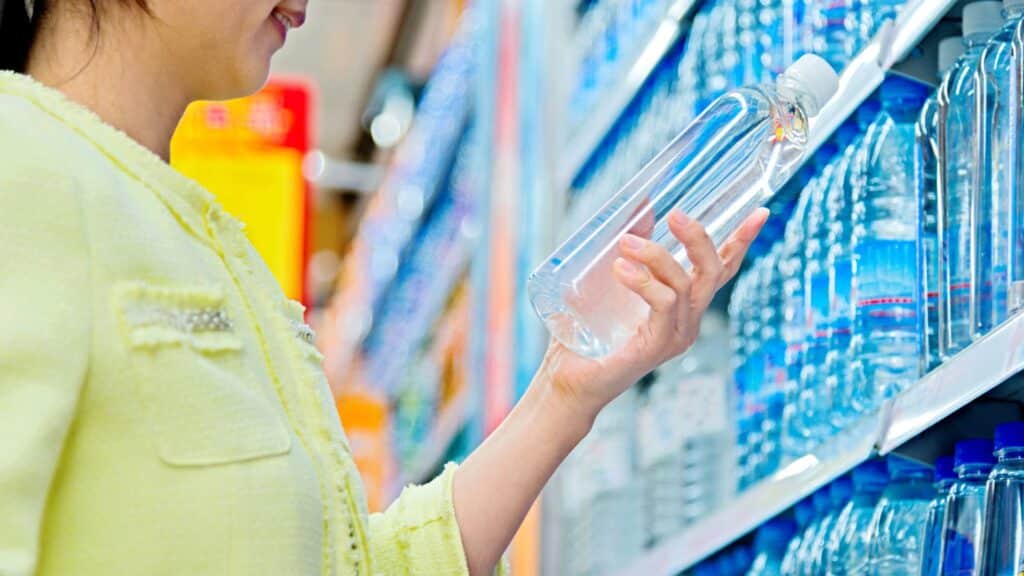
3. Filtered Water
Filtered water is a type of purified water that has been filtered to remove traces of sediment and other contaminant molecules. It is also referred to as water that has been filtered.
Types of Filters and Their Effectiveness
There are several types of filters that can be used to filter water, including activated carbon filters, reverse osmosis filters, and ceramic filters.
1. Activated Carbon Filters:
Activated Carbon Filters are used to remove chemicals, odors and other contaminants from water. The filter works by adsorbing materials to increase the efficiency of the filter. After prolonged use, these filters can become deactivated. Activated carbon filters need to be replaced at frequent intervals depending on how much liquid passes through them each day.
2. Reverse Osmosis:
Reverse Osmosis (RO) provides a very effective method to remove contaminants from water. It involves using a semipermeable membrane, which separates dissolved particles and minerals found from the clean water. Reverse osmosis is most often used as a treatment method for well or municipal water supplies before they get sent to the tap.
3. Ceramic Filters:
The ceramic filter is composed of two cylinders. There are small gaps in between the cylinders, allowing the liquid to go from one cylinder to another. This process allows it to filter out any impurities that may be present.
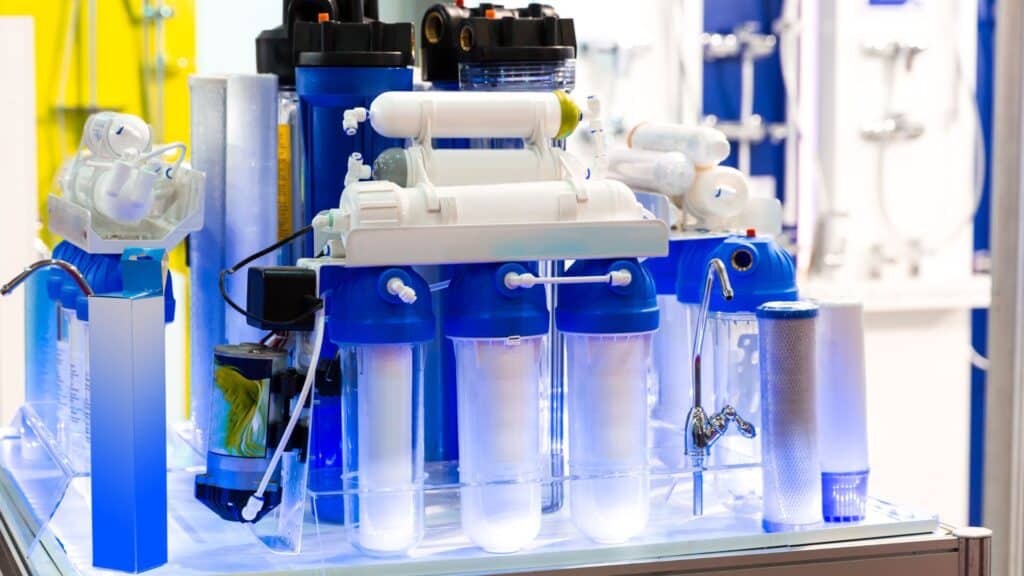
Considerations When Using Filtered Water for Baby Formula
Before adding any nutrients, water is the first ingredient in your baby formula. Considering that most of the water we consume is from a municipal system, it’s important to think about your health when deciding which water to use for your baby formula. While many filtered pitchers will remove unwanted minerals and chemicals, it is important to consider what sort of contaminants might remain in the water used for your baby formula.
Purification processes and water treatment technologies are critical for ensuring that water is safe for human consumption by removing harmful substances. Water purification can reduce the levels of total dissolved solids, chemicals, and microorganisms that pose health risks. Contaminated water can have adverse health effects, making it crucial to use safe drinking water, especially for infants. While using filtered water can offer health benefits, it is essential to consider potential remaining contaminants that may affect the quality of water used for preparing baby formula. Therefore, it’s crucial to choose the right water treatment method to ensure that the water used for baby formula is safe to drink.
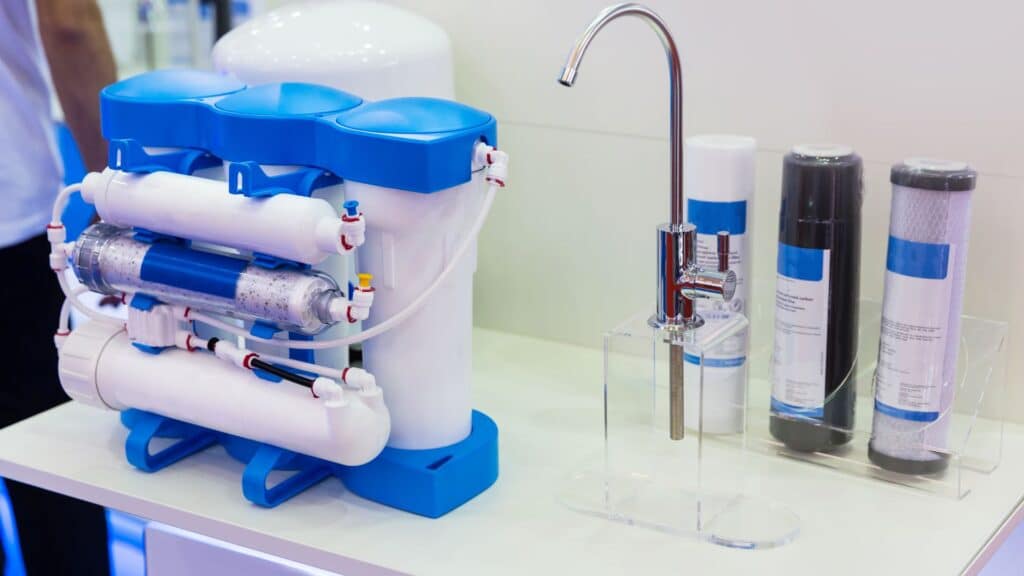
Conclusion
In conclusion, distilled water is considered one of the purest forms of water, and it is often recommended for baby formula due to its purity and safety. It helps reduce the risk of contaminants, is safe for a baby’s developing immune system, and contains no impurities.
To obtain distilled water for baby formula, it can be found at a local grocery store or supermarket, typically sold in gallon jugs or smaller bottles. While tap water and bottled water are other options for baby formula, they may contain contaminants or lack the necessary minerals for a baby’s development.
It is important to always read labels and follow instructions carefully when preparing baby formula to ensure that the baby receives the right amount of nutrients.
If you have any questions about our services, please feel free to leave a comment below.



